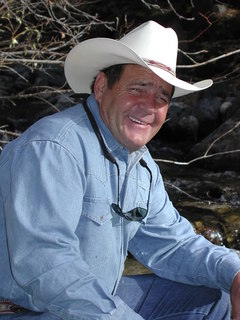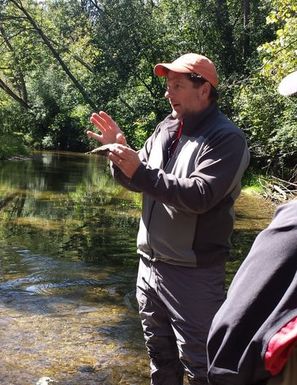Sunday October 28th
Concurrently Held, 12:30 p.m. – 3:30 p.m.,
At Superior Shores
NOTE: Must Register Separately for selected Workshop
Workshop 1: Watershed Assessment of River Stability and Sediment Supply (WARSSS)
Dave Rosgen, with Co-Presenter Brandon Rosgen, Wildland Hydrology
Dave Rosgen, with Co-Presenter Brandon Rosgen, Wildland Hydrology
(cap. 50 people) (cost $60)
See Workshop Description
See Workshop Description
Dave RosgenHydrologist/Geomorphologist, P.H., Ph.D., Principal of Wildland Hydrology in Fort Collins, Colorado
|
Principal of Wildland Hydrology in Fort Collins, Colorado, with field experience in river work spanning 50 years. Dave has designed and implemented over 70 large-scale river restoration projects. Dave developed a stream classification system, the BANCS streambank erosion model, the FLOWSED/POWERSED sediment transport models, the WARSSS methodology for cumulative watershed assessments, and a geomorphic approach to river restoration using a Natural Channel Design methodology. Dave utilizes his
extensive experience to conduct short courses in watershed management, river morphology, restoration, and wildland hydrology applications. Dave has also authored two textbooks and over 70 reports and articles in research journals, symposia, and federal agency manuals. |
Workshop 2: The Effects of Hydromodification on River Channels. Why Restoration to Memorable Times May Not be the Most Effective Strategy for a Sustainable Future.
Bill Annable, University of Waterloo, Waterloo, ON Canada.
(cap. 50 people) (cost $60)
Bill Annable, University of Waterloo, Waterloo, ON Canada.
(cap. 50 people) (cost $60)
Bill AnnableAssociate Professor of Civil and Environmental Engineering at the University of Waterloo in Ontario, Canada.
|
Bill has been researching the hydraulic, sediment transport, morphologic and eco-hydraulic characteristics and linkages of rivers across North American and Europe for the past 25 years. His principle areas of research focus on investigating the effects of hydromodification due to land-use change on both urban and rural settings and the bio-physical linkages between aquatic communities and their physical habitat conditions (including hydraulics, sediment transport, and groundwater / surface water interaction). In addition to theoretical and applied research, Dr. Annable has also been designing, monitoring and supervising the construction of river rehabilitation projects across North America totaling over 3,000 km of rivers studied and over 200km of river channels rehabilitated. Bill has also been investigating with colleagues the eco-hydraulic linkages of domesticated watersheds in Switzerland and Italy to assist with developing rehabilitation strategies to effectively rehabilitate watercourses historically effected by hydropeaking schemes.
|
This Conference is held by Laurentian RC&D; and is funded in part by Federal award NA17NOS4190062 under the Coastal Zone Management Act of 1972, as amended, administered by the Office for Coastal Management, National Oceanic and Atmospheric Administration (NOAA), U.S. Department of Commerce granted to Laurentian RC&D by the Minnesota Department of Natural Resources for Minnesota’s Lake Superior Coastal Program.
Copyright 2018. All rights reserved. Website photo's supplied by MNDNR unless otherwise noted.
Copyright 2018. All rights reserved. Website photo's supplied by MNDNR unless otherwise noted.


